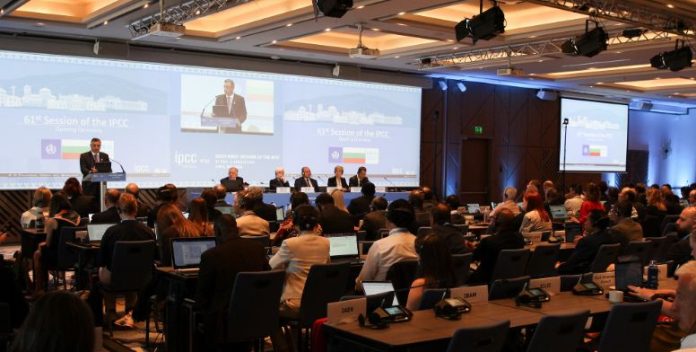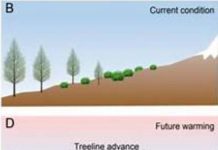With the US not expected to show up at the IPCC meeting, countries have a final chance to agree whether assessment reports could inform the next UN scorecard of climate action
Governments are expected to face fraught discussions next week over the timeline of several key climate science reports and the fallout of a reported US exit from the Intergovernmental Panel on Climate Change (IPCC).
At a week-long plenary meeting of the IPCC in Hangzhou, China, diplomats and scientists will again try to decide whether flagship reports reviewing the world’s knowledge of climate change should be ready in time for the next UN assessment of global climate action.
The IPCC is in its seventh assessment cycle – known as AR7 – which is meant to compile global climate science into three reports: one on the physical scientific basis for climate change, another on the vulnerability of human and natural systems, and a third one on options for mitigating climate change. These reports are scheduled for release in 2029.
Some scientists have called for the AR7 reports to be completed in time to inform the next review of climate policies as mandated by the Paris Agreement, known as the Global Stocktake and scheduled for 2028. But deep divisions have twice prevented an agreement on the timeline being reached so far.
European and Latin American states, small island nations and least developed countries have pushed for the reports to be delivered by mid-2028, in time for the next UN Global Stocktake. But, at the last gathering in August 2024, a dozen developing countries led by Saudi Arabia, Russia, China and India opposed an accelerated timeline, citing concerns over the inclusivity of a shortened assessment process.
Last chance for timeline agreement
Delta Merner of the US-based Union of Concerned Scientists, a close observer of IPCC talks, told Climate Home this is the last chance to reach an agreement. “If it goes beyond this meeting, it ends up being a decision made out of a failure to act,” she added.
Ahead of next week’s summit, the 39-member Alliance of Small Island States (AOSIS) has warned that efforts to “stave off the most catastrophic impacts of climate change” could be weakened if decisions at UN climate negotiations are made without the IPCC’s input.
AOSIS chair Ilana Seid from Palau said in written comments that the scientific analysis would improve understanding and help boost defences in the fight against climate change. She added that “timely and relevant” insights from the IPCC are “integral to the Global Stocktake process”.
“To backtrack is to drive our world irrevocably off-track,” Seid added.
After US retreat, countries clash over who should make up Green Climate Fund shortfall
Aside from the publication date of the AR7 reports, countries are also expected to discuss their outline, which technical experts sketched out at a meeting late last year.
Kaisa Kosonen, a senior political advisor at Greenpeace International, said observers are expecting to see “somewhat different priorities in what governments see as policy-relevant and must-haves in the outlines”.
US expected to stay home
The crucial talks in Hangzhou will likely proceed without the US delegation, as President Donald Trump’s administration reportedly halted the participation of officials from the State Department and scientists from federal agencies, according to Reuters and Axios.
The White House has not yet indicated whether the US will withdraw from the IPCC altogether. But Trump has already attacked other multilateral climate forums, kick-starting the process of pulling the US out of the Paris Agreement and blocking financial contributions to the UN’s climate body and the Green Climate Fund.
Up until now, the US has played a key role in supporting the IPCC and its scientific work.
The US – under the administration of Joe Biden – provided $1.45 million to the IPCC last year, amounting to over a quarter of total contributions from governments. It also supplied a dedicated unit that supported the work of IPCC scientists assessing methods for reducing greenhouse gas emissions.
Lula’s government pushes for new oil drilling in the Amazon – where it will host COP30
“If Trump were to revoke the US funding, there would likely be shortfalls and that would impact the ability to convene expert meetings and conduct assessments,” said Merner from the Union of Concerned Scientists.
The IPCC was contacted for comment but had not responded by the time of publication.
“Defunding the IPCC doesn’t just weaken global climate action potential – but it also leaves the US less prepared for a climate risk that directly threatens communities, the economy and national security here,” Merner added.

















